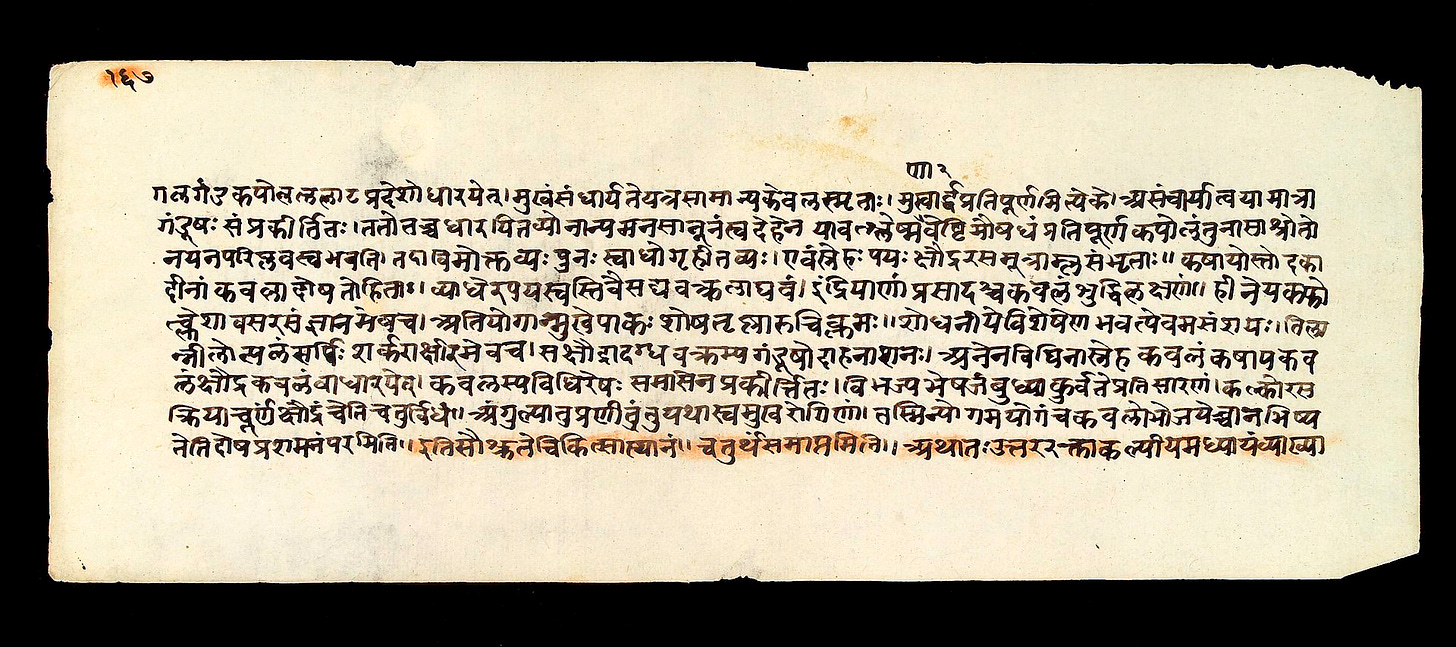Ashwagandha for the stressed college student?
Feeling stressed out due to end-of-term final exams? Ashwagandha may offer some relief.

What is Ashwagandha?
Ashwagandha (pronounced aash·wuh·gaan·duh) or Indian Ginseng (scientific name: Withania somnifera) is a plant belonging to the Solanaceae (nightshade) family. It is native to India, the Middle East, and parts of Africa. Ashwagandha has a long history of traditional use in Ayurvedic and Unani medicine, dating back more than 3,000 years.
Ashwagandha is considered an adaptogen—an herb that helps the body respond to mental and physical stress and which fosters resilience. Ashwagandha has long been revered as a sacred herb and used in various religious rituals. It has also been mentioned in several ancient texts, including the Charaka Samhita and Susruta Samhita, which are considered to be the foundational texts of Ayurvedic medicine.

In Ayurveda, Ashwagandha is believed to promote health and longevity through balancing the body's three doshas (vata, pitta, and kapha) and promoting overall health and vitality. It is also believed to have a calming and relaxing effect on the nervous system, which can help to reduce stress and anxiety. Ashwagandha roots have been traditionally used to treat stress, anxiety, depression, and insomnia. It is also believed to enhance cognitive function and boost immunity.
Ashwagandha Market Growth
The root and leaves of the plant contain a range of biologically active compounds, including alkaloids, steroidal lactones (withanolides), and flavonoids, which are thought to be responsible for its therapeutic effects. Ashwagandha is now widely used in modern herbal medicine and is available in various forms, including capsules, extracts, and powders.
According to the American Botanical Council’s assessment of Nutrition Business Journal (NBJ) on herbal dietary supplement 2021 sales data:
“Ashwagandha (Withania somnifera, Solanaceae) experienced the strongest mainstream sales growth in 2021 for the second consecutive year. Consumers spent 225.9% more on ashwagandha supplements in 2021 compared to the previous year, with sales totaling $92,326,926 — an increase of nearly $64 million from 2020.”
Research Findings on Ashwagandha
Scientists have examined Ashwagandha’s therapeutic effects in various models of stress, anxiety, and depression. For example, in 2022, one clinical study examined the impact of Ashwagandha on sleep, perceived stress, and food cravings in college students. Sixty students were enrolled in a 30-day double-blinded placebo-controlled intervention, with Ashwagandha root extract given at 700 mg daily. Initial and final assessments were conducted using validated questionnaires and anthropometric measurements.
Results: The Ashwagandha group had better sleep quality and lower food cravings than the placebo group. While the impact on perceived stress was not significant, the study indicated that Ashwagandha could be an effective and safe intervention to manage stress and improve sleep quality and satiety in young adults.
Limitations: The study's 30-day intervention period may not be long enough to show more pronounced stress-relieving differences, as seen in studies with longer periods.
One recent review examined the neuropsychiatric effects of Ashwagandha.
Results: The plant exhibits anti-stress, anti-anxiety, and antidepressant activity, with possible mechanisms including modulation of certain neuroendocrine pathways and serotonin regulation.
Limitations: There is variability in the chemistry of Ashwagandha extracts used in studies, which makes it difficult to establish an optimal preparation or dosage for treating neuropsychiatric conditions.
Another group of scientists undertook a systematic review and meta-analysis of 12 randomized clinical trials investigated the effect of Ashwagandha extract on anxiety and stress. The analysis included a total sample size of 1,002 participants.
Results: Ashwagandha supplementation significantly reduced anxiety and stress levels compared to the placebo.
Limitations: The certainty of the evidence was found to be low for both outcomes, and further high-quality studies are needed to establish its clinical efficacy.
The Takeaway
Ashwagandha is an increasingly popular supplement ingredient, experiencing rapid growth in mainstream sales. While early studies on the herb are promising, further research is required to determine the optimal dose and formulation for reducing stress and anxiety symptoms.
Yours in health, Dr. Quave
Cassandra L. Quave, Ph.D. is a scientist, author, speaker, podcast host, wife, mother, explorer, and professor at Emory University School of Medicine. She teaches college courses and leads a group of research scientists studying medicinal plants to find new life-saving drugs from nature. She hosts the Foodie Pharmacology podcast and writes the Nature’s Pharmacy newsletter to share the science behind natural medicines. To support her effort, consider a paid or founding subscription, with founding members receiving an autographed 1st edition hardcover copy of her book, The Plant Hunter.





